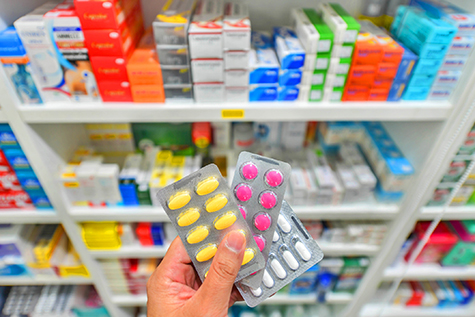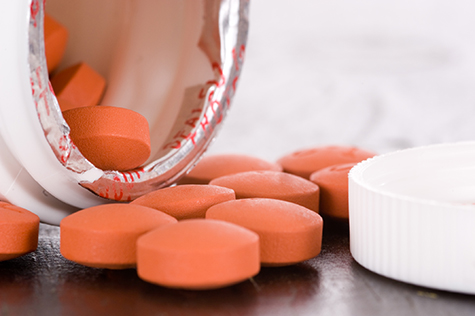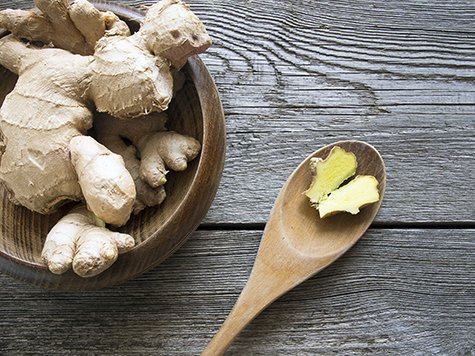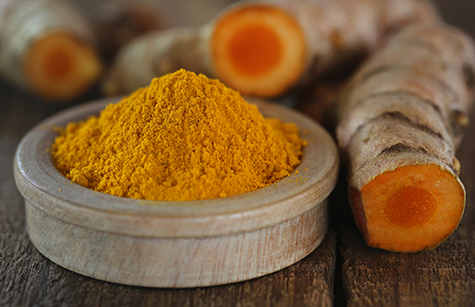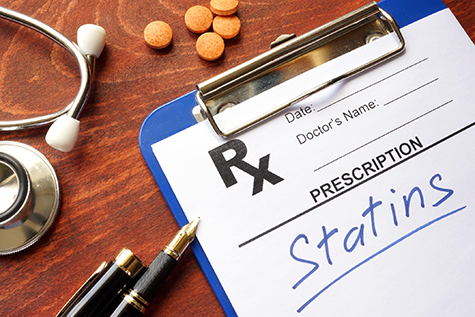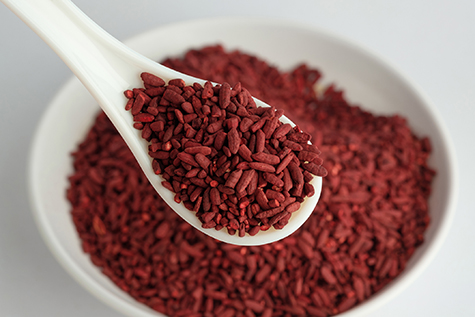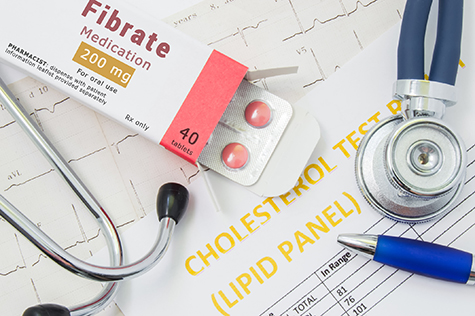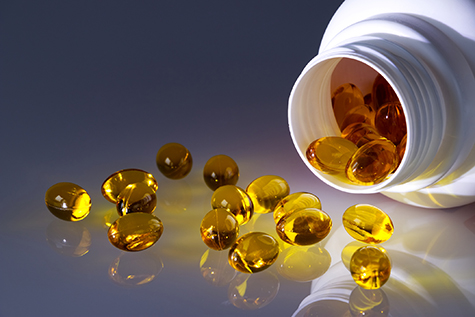Try Some Natural Swaps for These Medications

While you may think of prescription medications as being created by scientists in a lab, the
truth is that many drugs started as natural products. These plant-derived compounds are refined, isolated, and replicated in a lab where they become the common medications you’re familiar with. Many natural products can still offer health-promoting support and have powerful effects, just like medications. Keep in mind that you’ll need to work with your doctor on this for safety but here are some examples of natural counterparts to pharmaceutical drugs you may already be using.
1. PHARMACEUTICAL DRUG: IBUPROFEN
Ibuprofen is one type of nonsteroidal anti-inflammatory drug (NSAID) used to reduce fevers and pain through its anti-inflammatory effects. It is frequently used over-the-counter to treat pain from headaches, menstrual cramps, arthritis, and other conditions. Like many pharmaceutical drugs, ibuprofen does carry risks such as an increased risk for heart attack and stroke or stomach bleeding when used long term or at high doses.
Natural Counterpart: Ginger
This warming root spice has a number of medicinal uses due to its anti-inflammatory effects. Research suggests that ginger may be as effective as ibuprofen at managing pain from dysmenorrhea (severe menstrual cramps) and arthritis, when taken at appropriate doses. The doses ranged from 500-2000 mg daily, which can be obtained by eating about 1 inch of fresh ginger or taking 1-4 capsules of a ginger supplement daily. That’s a lot of ginger to eat but it’s also a delicious way to calm inflammation in the body.
Natural Counterpart: Turmeric
You may have heard of the amazing anti-inflammatory benefits of turmeric, and justifiably so. This bright orange root is a powerhouse of anti-inflammatory benefits and has been shown to improve osteoarthritis symptoms at doses of around 1000 mg daily. Add turmeric into your diet in curries or golden milk, or pick a supplement form–just make sure both options come with pepper, which helps to increase the bioavailability of turmeric! Keep in mind that at concentrated doses, the ‘active’ part of turmeric, curcumin, does thin the blood so if you have any risk of bleeding, use caution.
2. PHARMACEUTICAL DRUG: STATINS
Have high cholesterol? It’s possible your doctor has already put you on statins or suggested that it could be part of your future to reduce cholesterol and decrease your risk for heart attack and stroke. Statins work by blocking an enzyme that makes cholesterol in your liver but they do
come with significant side effects. Statins can cause headaches, muscle pain, and liver damage, and can even increase your risk for Type II Diabetes.
Natural Counterpart: Red Yeast
Rice Red yeast rice has been used for years in traditional Chinese medicine to lower cholesterol. Studies have found that certain red yeast rice products can reduce LDL by 22-34% and total cholesterol by 11-23%. This may be a natural product, but it contains a compound that is bioidentical to lovastatin, and as such, it likely carries similar risks to conventional statin medications regarding potential side effects and safety considerations. Talk to your doctor about introducing red yeast rice to make sure it is the right choice for you, finding the right formulation and the type of monitoring you’ll need for side effects.
3. PHARMACEUTICAL DRUG: FIBRATES
There’s a type of drug treatment for high triglycerides called fibrates. Fibrates like Atromid, Lopid, Antara, Lofibra and beyond are prescribed to reduce the liver’s production of fatty acids, triglycerides, and very low-density lipoprotein (VLDL), and increase production of HDL (“good” cholesterol). They are commonly prescribed when someone is not tolerant of statins, but this class of drugs have similar side effects such as upset stomach, muscle pain, and increased risk of kidney damage.
Natural Counterpart: Fish Oil
The oil from cold water fatty fish like salmon, mackerel, and sardines are full of anti-inflammatory omega-3 fatty acids which help to lower high triglycerides. Some studies have found that you can reduce your triglyceride levels by 20-50% by taking a fish oil supplement. The amount you need to take will depend on your triglyceride levels and other factors, so work with a doctor to determine the appropriate dose for your situation.
Should you swap your medications for a natural counterpart?
These swaps are powerful, and studies back up the fact that they can be used to support your health goals. After reading about food-based natural counterparts to medications, you might be tempted to toss out your medication bottles and raid your closest supplement store. Before you do that, talk to your medical care team first. Many medications are prescribed to prevent life-threatening conditions and stopping or switching these medications on your own should be done under a doctor’s supervision. Meet with a Registered Dietitian to help you develop a plan for safely including these foods and supplements in your diet.
References:
Ginger – Natural Medicines – Professional. https://naturalmedicines.therapeuticresearch.com/databases/food,-herbs-supplements/professional.aspx?productid=961. Accessed January 28, 2020.
Turmeric – Natural Medicines – Professional. https://naturalmedicines.therapeuticresearch.com/databases/food,-herbs-supplements/professional.aspx?productid=662. Accessed January 29, 2020.
Red Yeast Rice – Natural Medicines – Professional. https://naturalmedicines.therapeuticresearch.com/databases/food,-herbs-supplements/professional.aspx?productid=925. Accessed January 29, 2020.
Fish Oil – Natural Medicines – Professional. https://naturalmedicines.therapeuticresearch.com/databases/food,-herbs-supplements/professional.aspx?productid=993. Accessed January 29, 2020.
